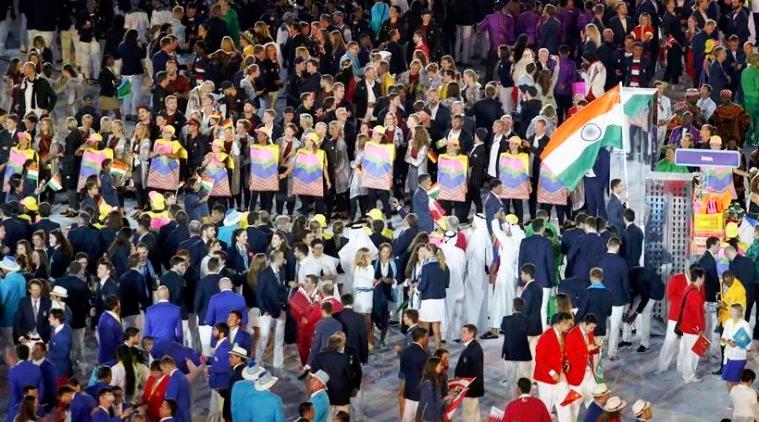Opinion Fifth Column: Lessons from Rio
The sad truth is that India’s biggest failures in 70 years of glorious independence have been in the area of human resource development.

 Indian contingent at the Rio Olympics opening ceremony at the Maracana stadium (Source: Reuters)
Indian contingent at the Rio Olympics opening ceremony at the Maracana stadium (Source: Reuters)
Another Olympics and yet again India, a country the size of a continent, comes away with fewer medals than little island nations. Yet again self-appointed experts have held forth about the dearth of sports facilities and the mendacity of officials in charge of these things. This time there has been additional ire over the disgraceful behaviour of our sports minister in Rio. In a few weeks, all will be forgotten. And without doubt, the next time young Indians compete at an international level, they will once more fail.
It is not just in the sports field that this happens time and again but in international tests like PISA (Programme for International Student Assessment), where the last time Indian students competed, they came second last. In the competition were students from 73 countries and only those from Kyrgyzstan did worse. This was four years ago and if anything has been done to rectify our abysmal school standards, it has remained a deep, dark secret.
The sad truth is that India’s biggest failures in 70 years of glorious independence have been in the area of human resource development. In keeping with the colonial form of governance we inherited, we have allowed our elected representatives and officials to maintain one standard for themselves and another for us natives. In long years of covering politics and government, I have never met a high official or political leader who sent his children to a government school or to government hospitals when they got sick. So these vital public services have shown almost no visible improvement in decades. In this time, private schools have improved enormously and compete with the best. But because higher education remains in the doldrums, those who rule us always mysteriously find the means to educate their own children in fine foreign universities.
So why do we lament over the inability of young Indians to compete internationally? It is not just sports facilities that India’s children lack but much more basic human needs. Many of those whom we sent to compete in the Olympics would have grown up in villages in which even clean drinking water may have been unavailable. In my humble opinion, it was because of this total breakdown at every level of our public services that India’s voters invested so much hope in Narendra Modi. What made the 2014 election so electrifying was this palpable, desperate hope that he really would bring ‘parivartan’ in the lives of ordinary Indians, who have long suffered the worst public services in the world.
The day after our medal drought ended in Rio, I happened to travel by road through one of our more developed states. In the ugly, unplanned towns and villages I passed, I made it a point to look out for stadiums and other sports facilities. All I saw were patches of wasteland on which children played and signs that indicated the existence of private gyms in tiny holes in the wall. I saw many, many private schools but they consisted mostly of small rooms crammed full of children sitting on the floor. Nearly 10,000 private schools of this rudimentary kind have been forced to close under the rules of the misguided Right to Education law. But is it their fault that they cannot afford playing fields and other mandatory provisions?
This useless law was passed by the Sonia-Manmohan government, that took pride in its ‘rights-based’ approach to development. Somehow nobody noticed that not many Indians have the resources to fight for these rights. It is now two years since that government disappeared into history’s garbage bin, but the policies they made remain unchanged. The Prime Minister needs to ask himself why. He himself, in one of his first speeches in the Lok Sabha, mocked at the futility of the right to employment that MGNREGA provides, but has since embraced this scheme that guarantees dole and not real jobs.
In the past two years, the Prime Minister has given no indication that he understands that until he makes major changes in the ministries that deal with human development, all his other schemes will fail. He has often said proudly in his speeches abroad that India, because it has such vast numbers of young people, can become the services capital of the world. What he appears not to have noticed is that this will not happen until the ministries that deal with education, healthcare, sanitation and water are manned by his best ministers.
Unless this change happens, India’s young people will continue to fail when they compete internationally for jobs or honours in sports or education. Compulsory Sanskrit and Vedic mathematics are as unlikely to provide solutions as if we were to introduce ancient sports from the Ramayana and Mahabharata. Meanwhile, this column celebrates the two women who saved India from the disgrace of returning empty-handed from Rio.





